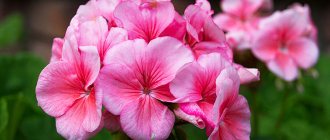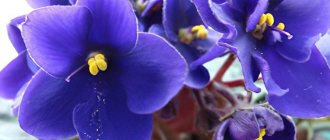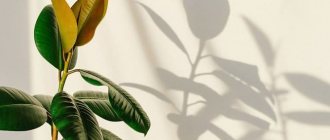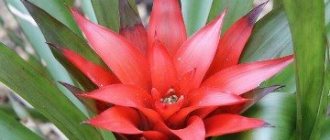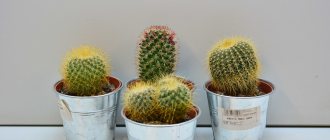Popular beliefs
Clivia fascinates with her beauty. But despite all its external attractiveness, the flower carries a certain degree of danger. Let's figure out which one it is.
Positive
Clivia is most suitable for people born under the sign of Sagittarius. Active and mobile, they will be able to feed on the missing energy from this African giant. Sagittarius can safely grow a plant, being confident that it will bring them good luck in all their endeavors. For those suffering from cardiovascular diseases, clivia will help you feel better.
Negative
Carefully observing a pot of clivia standing on the windowsill, we can safely state: if the flower bloomed at the right time and then abruptly completed this process, then a black streak is expected in the life of the household. The withering of the leaves of a tropical plant in any season also promises trouble.
Remember: the brighter the clivia blooms, the more poisonous it is.
A decorative friend, according to popular rumor, is capable of causing a quarrel between a husband and wife and causing confusion in their relationship.
Money superstitions
According to folk predictors, this flower is capable of attracting money and wealth to the house. To implement this sign, you need to bury at least one coin made of yellow metal in the pot. This should be done at a certain period, when the plant blooms luxuriantly and profusely.
After this, various pleasant surprises await the person - frequent gifts, winnings, a salary increase, receiving a bonus, finding, albeit insignificant, important and interesting things and objects.
According to popular beliefs, a flower that suddenly stops blooming and drops its already opened flower buds promises a person great financial losses and waste.
The sign has the same meaning when a plant loses its decorative properties - it withers, turns yellow and sheds its leaves with good care and maintenance.
Can I keep it in the house?
If we put aside prejudices and old wives' tales, it turns out that clivia can really do harm. Magic has absolutely nothing to do with it. It’s just that the flower, like most of its African relatives, is poisonous.
So you should take care of the flower only with gloves, and install it at home so that neither children nor animals can reach the bright exotic. Otherwise you will have to call an ambulance.
You should never sniff this exotic to avoid ending up in the hospital.
And superstitious people just need to acquire this type of indoor plants so that the flower with its appearance can signal in advance in case of expected troubles.
Photo
In the photo below you can see what the plant looks like.
This is clivia cinnabar:
Clivia noble:
And this is what a beautiful clivia looks like:
Is the plant useful?
The green friend purifies the air in the room and promotes relaxation after a hard day at work. To get rid of bad thoughts from your head, you need to “communicate” with a flower. Just be sure to do it from a distance.
Direct contact with exotic flora will lead to disastrous consequences. It is better to admire the beautiful inflorescence from afar, calming the eyes and nervous system.
Heavy smokers are advised to purchase such a flower. It will be able to neutralize toxins from exhaled smoke.
Being in the same room with clivia, a person imperceptibly becomes kinder, becomes good-natured, does not show aggression and does not get nervous over trifles.
Superstitions of flower growers
People who grow flowers believe that they should be on their guard with this member of the Amaryllis family. The poisonous juice contained in the leaves and shoots of the plant is dangerous for both adults and children. Poisoning can cause paralysis and death.
Therefore, when caring for a flower, you should wear gloves and protect all mucous membranes from getting juice on their surface. The plant should be kept away from children and pets.
Many people try not to buy this poisonous flower, especially if there are preschool children in the house. When eating leaves and flowers, there is a high risk of developing severe pain in the digestive tract and indigestion. Licorin, cleavimin and clevitin, contained in the tissues of the flower, provoke the development of these side effects and have a strong hypnotic effect.
Where is the best place to put a flower?
If you place a pot of clivia in the bedroom or nursery, you may subsequently complain of headaches, nausea, and insomnia. Being too close to a flower and inhaling its aroma can cause poisoning and even paralysis of the respiratory organs.
You can place a flower in your office. The plant will help relieve stress and prevent the body from being overloaded. If it is possible to place a flowerpot in the hallway, the plant will begin to charge energy at the entrance to the apartment, protecting it from people with bad intentions. Clivia will also take root well in the kitchen, instilling optimism in the household and giving cheerfulness.
Planting and transplanting
Despite the whimsical conditions of detention, clivias are difficult to tolerate transplantation. Therefore, they are disturbed only when the roots come to the surface. Young crops are replanted no more than once a year, adults - once every two to three years.
For plants that have reached 10 years of age, the soil is refined by removing the top layer in the pot to a depth of 5 cm and replacing it with a new one.
Transferring from a smaller pot to a larger one begins after flowering. When a wound appears, sprinkle it with crushed activated carbon powder to prevent the roots from rotting. Each subsequent container is taken 3 cm larger than the previous one. In a container that is too large, the plant will begin to grow the root system rather than form a peduncle.
Drainage stones are placed at the bottom, then the prepared soil mixture. If you buy it in a store, then choose soil for orchids, which is ideal for clivias.
Before placing the soil mixture in the pot, it must be disinfected. You can do this in several ways:
- place in the microwave for a few minutes;
- treat with hot water or a slightly pink solution of potassium permanganate (potassium permanganate);
- place in the oven at maximum temperature for a quarter of an hour.
Such measures are designed to destroy fungal spores and pest larvae. The use of fungicides and other chemicals is not advisable, since this also kills beneficial microorganisms.
About 30 g of fertilizers, which include phosphate rock, are added to the prepared soil.
Transplant sequence:
- Clivia is watered several hours before transplanting. The wet earthen lump is carefully removed. If there are rotten or broken roots, they are trimmed, and the wounds are treated with activated carbon powder.
- Drainage is poured into the bottom of the flowerpot.
- Then a layer of soil 3 cm thick is poured and the flower is transferred. Straighten the roots and cover with the remaining soil up to the root collar.
Talisman for zodiac signs
Clivia is a sunny plant. Therefore, it will bring prosperity to all signs ruled by the Sun. First on the list is Sagittarius, followed by Leo. The Tropican will also be able to positively influence the lives of Aquarius and Capricorn, but this will be to a much lesser extent than with the first two signs.
If you want to give a pot of clivia as a gift, make sure that the person belongs to one of the above zodiac signs. If not, then it's better not to do it. And do not forget to warn about the poisonous properties of the exotic plant.
About poisons
The leaves of the exotic clivia contain lycorine, clivatin and cleavimin. These are alkaloids. When ingested into the human body in small doses, lycorine provokes excessive salivation, an attack of diarrhea and vomiting. In large doses, lycorin can cause cardiovascular failure, loss of consciousness, and there is a risk of death or paralysis.
In the house, pets or small children may suffer because of this, so the culture should be placed away from places that are easily accessible to them.
Feng Shui point of view
Clivia loves people who are prone to adventure. She feeds such people with energy, blessing them for new exploits.
Travel lovers should allocate a place for the flower in the northwestern zone. This way Clivia will be able to protect you on the way and contribute to a happy return home. The southeast location will help you gain wealth.
To gain recognition from friends and gain authority from colleagues, a southern window sill is suitable. Just be sure to make sure that clivia is protected from direct sunlight, because in natural conditions it is accustomed to growing in the shade of trees.
About Feng Shui
According to Feng Shui traditions, Clivia's place is on the windowsill on the south side of the house. Flowers have good neutralizing properties of negative energy.
Clivia is a treasure for a person who spends time on the road and travelling. The plant inspires new projects, ideas and discoveries, because it is patronized by the Sun, a symbol of travelers and discoverers.
In a mysterious way, the plant harmonizes the surrounding space and balances the energy flows of everyone who lives in the room.
Clivia has a beneficial effect on the work and tone of the heart muscle, making you feel cheerful and full of vitality.
This is a plant of joy and love. It shares joyful and light energy.
Folk signs
To increase your fortune, you should bury a copper coin in a flowerpot with clivia. If you don’t find one, use any other one, but be sure to be yellow. If African flowering is late, prepare for material losses and unforeseen expenses.
If you give a flower to your boss, he will become more compliant and less angry.
As you can see, owners of clivia can receive both positive emotions and improvement in their condition from the plant, or find themselves in a completely opposite situation. Therefore, whether it is worth getting involved with such an ambiguous flower - everyone must decide for themselves.
General description of clivia
The leaves are herbaceous with a thickened base, collected in a rosette. The flowers are red, yellow or orange, arranged several times in large inflorescences. They bloom twice a year. The first flowering is in February or the first ten days of March, the second in late May-early June. The roots are thick and strong, capable of accumulating moisture and nutrients.
The plant is considered unpretentious; it can be placed on any windows in the house. Of all the varieties, Clivia miniata and Clivia nobilis are cultivated. The first is used medicinally by the Zulu as an antidote for snake bites and a remedy for fever. At the same time, experts warn that the roots of the flower are toxic due to the presence of alkaloids, so they must be used in treatment with caution.


